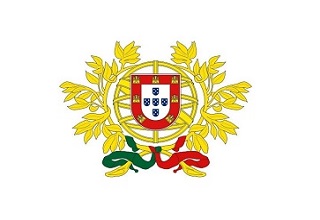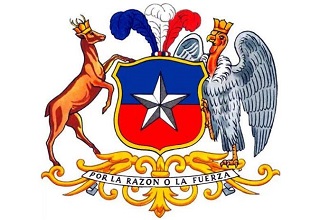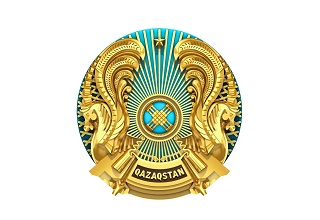Regarding the Inspection and Quarantine Requirements for Honey from Georgia to China
According to the inspection, quarantine and veterinary health requirements for honey exported to China by the Chinese Customs and the Ministry of Environmental Protection and Agriculture of Georgia, from now on, Georgian honey that meets the relevant requirements is allowed to be imported.
I. Inspection and quarantine basis
(I) Laws and regulations.
The Food Safety Law of the People's Republic of China and its implementing regulations, the Law of the People's Republic of China on Entry and Exit Animal and Plant Quarantine and its implementing regulations, the Law of the People's Republic of China on Import and Export Commodity Inspection and its implementing regulations, the Special Provisions of the State Council on Strengthening the Supervision and Management of Food and Other Product Safety, and the Measures for the Administration of Import and Export Food Safety of the People's Republic of China and the Regulations on the Registration and Administration of Overseas Production Enterprises of Imported Food of the People's Republic of China.
(II) Bilateral Protocol.
Protocol on Inspection, Quarantine and Veterinary Health Requirements for Honey Exported to China between the General Administration of Customs of the People's Republic of China and the Ministry of Environmental Protection and Agriculture of Georgia
II. Products allowed to be exported to China
Georgian honey allowed to be exported to China refers to natural sweet substances that are fully brewed after bees collect nectar, secretions or honeydew from plants and mix them with their own secretions.
III. Requirements for processing enterprises
Honey processing enterprises exported to China shall be registered with the Chinese Customs. The Ministry of Environmental Protection and Agriculture of Georgia will review the honey processing enterprises that intend to export to China, and recommend them to the Chinese Customs if they are found to comply with the laws, regulations, standards and requirements of the Protocol. Unregistered honey processing enterprises are not allowed to export honey to China.
IV. Inspection and Quarantine Requirements
(I) Bees that provide raw materials for honey exported to China must meet the following conditions:
1. They come from apiaries located in Georgia, which should be registered and effectively supervised by the competent authorities.
2. The nectar, secretions or honeydew collected by bees should be safe and non-toxic, and must not come from toxic nectar plants and genetically modified plants.
(II) The Ministry of Environmental Protection and Agriculture of Georgia confirms that there is no beehive beetle disease (honeycomb beetle) and bee bright heat laelaps disease in its territory.
(III) There is no American honey bee foulbrood disease and European honey bee foulbrood disease within a radius of 5 kilometers around the apiary and within 12 months before the product is exported to China.
(IV) Quarantine requirements for Varroa mite disease in honey bees: the honey source apiary and the surrounding radius of 5 km, and the product has no Varroa mite infection within 12 months before being exported to China; or it has been filtered with a filter with a pore size not exceeding 0.42mm; or it has been heated to a central temperature of more than 50℃ and maintained at this temperature for 20 minutes; or it has been frozen to a central temperature of minus 12℃ or lower and maintained at this temperature for at least 24 hours to ensure that the Varroa mite disease and its eggs in the honey bees are killed, and necessary measures are taken to effectively remove the remains of mites and their eggs.
V. Production, storage and transportation requirements
(I) The apiary that provides raw materials for the production of honey exported to China has never used veterinary drugs banned by China and Georgia.
(II) The honey exported to China comes from processing enterprises that have established a traceability system to ensure that the honey exported to China can be traced back to its apiary.
(III) The residual amounts of veterinary drugs, pesticides, microorganisms, heavy metals and other environmental pollutants in the honey exported to China do not exceed the maximum limits of China and Georgia.
(IV) During the epidemic of major public health diseases, enterprises shall formulate necessary honey safety prevention and control measures in accordance with relevant international regulations and standards to ensure that the prevention and control measures are effective and not cross-contaminated during the whole process of raw material reception, processing, packaging, storage and transportation.
(V) Honey exported to China is hygienic, safe and suitable for human consumption.
(VI) The whole process of processing, storage and transportation of honey exported to China shall comply with the relevant health requirements of China and Georgia to prevent contamination by toxic and harmful substances. Honey exported to China shall not be processed or mixed with products that do not meet the requirements of the Protocol, products of non-registered processing enterprises, and other products of registered processing enterprises.
(VII) The Ministry of Environmental Protection and Agriculture of Georgia shall mark all stages from bee farms to processing, packaging and storage. An independent finished product warehouse or special area for storing honey exported to China shall be set up and clearly marked.
(VIII) After the goods are loaded into the container, they shall be sealed under the supervision of officials of the Ministry of Environmental Protection and Agriculture of Georgia, and the seal number shall be indicated in the veterinary health certificate. The packaging must not be opened or changed during transportation.
VI. Certificate requirements
Each container/batch of honey exported to China shall be accompanied by at least one original health certificate to prove that the batch of products complies with the relevant laws and regulations on veterinary and public health of China and Georgia and the relevant provisions of the Protocol.
The veterinary health certificate shall be written in Chinese, Georgian and English. The format and content of the veterinary health certificate shall be approved by both parties in advance.
The Ministry of Environmental Protection and Agriculture of Georgia shall provide the inspection and quarantine seal impression, seal mark, health certificate sample, list of authorized visa personnel and corresponding signature style, anti-counterfeiting mark description and other information to the Chinese Customs for filing. If there are any changes or modifications, they shall be notified to the Chinese Customs at least one month in advance.
VII. Packaging and labeling requirements
Honey exported to China must be packaged with food contact materials that meet the Chinese national food safety standards. The package must be sealed and must indicate the product name, product specifications, origin (specific to state/province/city), manufacturer registration number, production batch number, destination (destination should be indicated as the People's Republic of China), production date (year/month/day), shelf life, etc. in Chinese and Georgian or Chinese and English. Pre-packaged honey exported to China must also comply with China's laws, regulations and standards on pre-packaged food labels.
GACC




